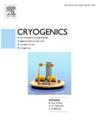A reverse design method for cryocooler regenerator based on artificial neural network
IF 1.8
3区 工程技术
Q3 PHYSICS, APPLIED
引用次数: 0
Abstract
In conventional cryocooler regenerator design, researchers typically employ specialized software to traverse numerous parameter combinations to assess performance, comparing the results against predetermined requirements to determine the optimal structural dimensions and operating parameters. However, this approach suffers from low research and development efficiency, and the optimal solution may not be included in the tested cases. To address these issues, this study proposes a novel reverse design methodology that directly calculates the regenerator structural dimensions and operating parameters based on predefined target performance. The method centers around the deep learning artificial neural network (ANN) model as its core, effectively addressing the challenge of setting input and output parameters during the model’s learning process using the performance dataset obtained through forward calculation of the regenerator. Additionally, a wide-range and multi-step input parameter adjustment mechanism is incorporated, thereby ensuring the method’s adaptability and practical applicability. The optimized ANN model demonstrates promising results, with an average relative error of 2.36% for regenerator length prediction, 4.79% for cold end mass flow prediction, and 4.73% for coefficient of performance (COP) prediction. Extensive model accuracy assessments confirm the model’s predictive capabilities across various intervals of the predicted variables. By utilizing the rapid computational speed of deep learning models and their proficiency in parallel processing, the method proposed in this study dramatically shortens the regenerator design time to mere seconds, thereby introducing a pioneering approach for rapid and precise regenerator design.
一种基于人工神经网络的制冷机蓄热器反设计方法
在传统的制冷机蓄热器设计中,研究人员通常使用专门的软件遍历众多参数组合来评估性能,将结果与预定要求进行比较,以确定最佳的结构尺寸和操作参数。然而,这种方法的研发效率较低,并且最优解可能不包含在测试用例中。为了解决这些问题,本研究提出了一种新的反向设计方法,该方法根据预定义的目标性能直接计算再生器的结构尺寸和运行参数。该方法以深度学习人工神经网络(ANN)模型为核心,利用再生器正演计算得到的性能数据集,有效解决了模型学习过程中输入输出参数设置的难题。并引入了大范围多步输入参数调节机制,保证了方法的适应性和实用性。优化后的人工神经网络模型具有良好的预测效果,再生器长度预测的平均相对误差为2.36%,冷端质量流量预测的平均相对误差为4.79%,性能系数(COP)预测的平均相对误差为4.73%。广泛的模型精度评估证实了模型在预测变量的不同区间内的预测能力。利用深度学习模型的快速计算速度及其对并行处理的熟练程度,本研究提出的方法将再生器的设计时间大大缩短到几秒钟,从而为快速精确的再生器设计引入了一种开创性的方法。
本文章由计算机程序翻译,如有差异,请以英文原文为准。
求助全文
约1分钟内获得全文
求助全文
来源期刊

Cryogenics
物理-热力学
CiteScore
3.80
自引率
9.50%
发文量
0
审稿时长
2.1 months
期刊介绍:
Cryogenics is the world''s leading journal focusing on all aspects of cryoengineering and cryogenics. Papers published in Cryogenics cover a wide variety of subjects in low temperature engineering and research. Among the areas covered are:
- Applications of superconductivity: magnets, electronics, devices
- Superconductors and their properties
- Properties of materials: metals, alloys, composites, polymers, insulations
- New applications of cryogenic technology to processes, devices, machinery
- Refrigeration and liquefaction technology
- Thermodynamics
- Fluid properties and fluid mechanics
- Heat transfer
- Thermometry and measurement science
- Cryogenics in medicine
- Cryoelectronics
 求助内容:
求助内容: 应助结果提醒方式:
应助结果提醒方式:


